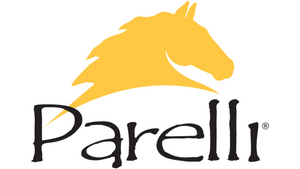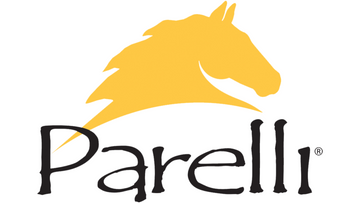
By Pat Parelli
I've been working on trying to help people understand how horses feel, think, act, and play for more than four decades. I tried to use newly developed terms to help people to think differently and see the situation and solutions in a new light. Behavioral cancer is a term I have been using for the last 20 years to get people to see the gravity of the situation. I’ve used terms like highly functional, dysfunctional, good, bad, right, and wrong. All different ways to look at things, but to me, either our horses are behaving the way that we want or they aren’t. We would all like our horses to act like partners, to be calm, smart, brave, and athletic. We would all like our horses to cooperate with us and put effort into the relationship. This is what true partnerships are about. So maybe we can use the term behavioral cancer to understand that when a horse does something we don’t want him to do, it starts to become a pattern. This is when we can see that we now have a little cancer growing.
A few years ago, I went to a dermatologist for little spots on my face in my hands. The dermatologist said, “Not a big deal right now.” In other words, these little skin cancers or pre-skin cancers were at a point where awareness was enough to make me want to do something about it. Getting rid of the cancer is one thing, but changing how I dealt with the sun and the wind, putting on skin protection, and even lotion at night were all new things for me. But after more than six decades of that behavior, it had some ramifications.
Horses are a lot like computers, they may never do what you want, but they always do what you tell them or what you have programmed them to do, both positive and negative. To err is human, but to blame the horse is even more human. We need to look at what habits of ours are causing the horse to have habits. What are his tendencies? What are the things that create this anti-partnership behavior? Why do horses spook? Why do horses run off? Why do horses bolt? Why do horses rear? Why do horses run off? Why do horses buck and lean against pressure? Most of us have concentrated on being nice, wonderful humans that own horses, take good care of them and become good riders. Still, nobody's talking about how to use communication and understanding psychology to become the horseman that your horse needs you to be.
This is the real answer. Suppose we understand that horsemanship is the perpetual and progressive series of habits and skills that both horses and humans need to become partners. In that case, we realize it's all about the habits and skills we need to grow our horses in a positive direction and are rewarded with bonding, obedience, and exuberance. The only solution I know is to keep it natural by using communication, understanding psychology versus mechanics or fear and intimidation, or doing little to nothing about it and not changing our ways.
I'm here to help humans have a better horse life so the horses can have a better horse life. So, my advice to you is to keep it natural.








Thank you PNH. It is truly heart warming to have a horse put in try and ask you questions. Such an honor!
Great thoughts